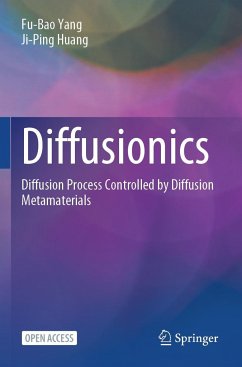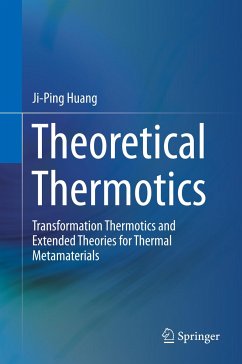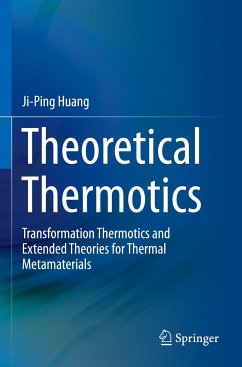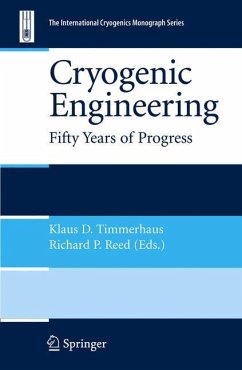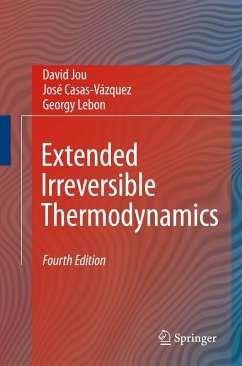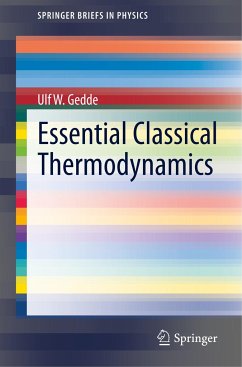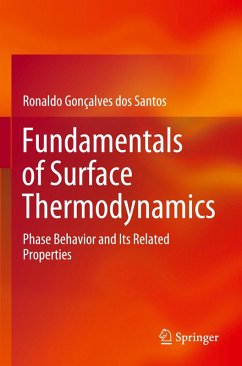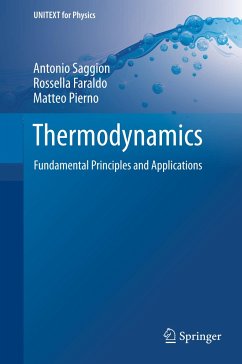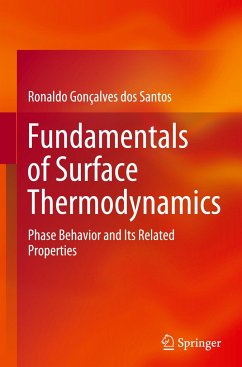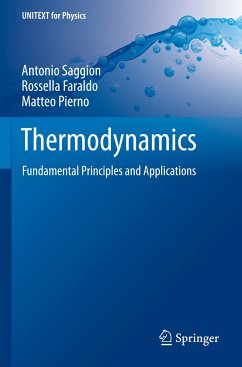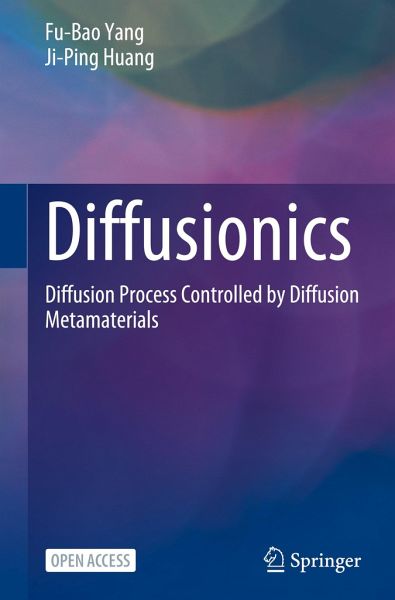
Diffusionics
Diffusion Process Controlled by Diffusion Metamaterials

PAYBACK Punkte
19 °P sammeln!
This open access book presents a comprehensive exploration of diffusion metamaterials that control energy and mass diffusion. Currently, if from the perspective of governing equations, diffusion metamaterials and wave metamaterials (pioneered by J. B. Pendry in the 1990s) are recognised as the two most prominent branches in the field of metamaterials. These two branches differ in their emphasis on the diffusion equation (as the governing equation) and time-dependent characteristic lengths in diffusion metamaterials, as opposed to the wave equation (as the governing equation) and time-independe...
This open access book presents a comprehensive exploration of diffusion metamaterials that control energy and mass diffusion. Currently, if from the perspective of governing equations, diffusion metamaterials and wave metamaterials (pioneered by J. B. Pendry in the 1990s) are recognised as the two most prominent branches in the field of metamaterials. These two branches differ in their emphasis on the diffusion equation (as the governing equation) and time-dependent characteristic lengths in diffusion metamaterials, as opposed to the wave equation (as the governing equation) and time-independent characteristic lengths in wave metamaterials. Organized into three distinct parts - 'Thermal Diffusion Metamaterials', 'Particle Diffusion Metamaterials', and 'Plasma Diffusion Metamaterials' - this book offers a rigorous exploration spanning physics, engineering, and materials science, aimed at advancing our understanding of diffusion processes controlled by diffusion metamaterials. Incorporating foundational theory, computational simulations, and laboratory experiments, the book equips researchers and scholars across these disciplines with comprehensive methods, insights, and results pivotal to the advancement of diffusion control. Beyond facilitating interdisciplinary discourse, the book serves as a catalyst for innovative breakthroughs at the crossroads of physics, thermodynamics, and materials science. Essentially, readers will acquire profound insights that empower them to spearhead advancements in diffusion science (diffusionics) and the engineering of metamaterials.





